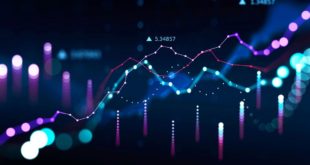Lew Rockwell appears on NOW with Bill Moyers. Lew discusses Bush, Iraq, and the US economy. Originally broadcast on March 7, 2003. "We have to educate ourselves, and educate others about our own history, our real history, about what's actually going on these days, about real economics, and the principles of liberty. And I think that is: if we have any salvation, it's through that, and certainly in secular terms." [embedded content] [embedded content]...
Read More »Pfizer Faces Lawsuit for Covid Vaccine Lies
On this episode of Radio Rothbard, Ryan McMaken and Tho Bishop are joined by Dr. Gilbert Berdine, an associate professor of medicine at Texas Tech University Health Sciences Center and an affiliate of the Free Market Institute at Texas Tech University. In 2020, Dr. Berdine was warning about efficacy and risks claims being made over covid vaccines, which are at the forefront of a recent lawsuit by the State of Texas against Pfizer. Ryan and Tho discuss the case with...
Read More »Can Econometric Models Provide a Laboratory Setting for Economic Analysis?
Econometric models are constructed with the idea that they can be substituted for authentic human action. Not surprisingly, they fail badly. Original Article: Can Econometric Models Provide a Laboratory Setting for Economic Analysis? [embedded content] Tags: Featured,newsletter
Read More »Understanding Anti-Capitalist Fallacies
Capitalism, defined as a form of social organization in which there are means of production such as private property and wage labor, is not the moral principle upon which liberalism is based. The reason for this is that there are nonliberal scenarios that capitalism, as a moral principle, allows for—for example: slavery, sexism, racism, and various forms of violence. However, semantic compatibility does not imply a causal relationship between such variables. In this...
Read More »The First Enemies of Free Markets Were Conservatives, Not Socialists
As with the Republican party and the conservative movement in the United States, conservatism in the United Kingdom does not constitute a coherent ideological movement. It is, rather, a coalition of ideological groups and interest groups. Some of these are fairly libertarian in nature, as with the Thatcherites. On the other hand, conservative parties and activist groups also contain traditionalist conservatives and nationalists, neither of which are primarily or...
Read More »Libertarianism and the Importance of Understanding Causality
A bedrock of Austrian economic thinking is the notion of causality. A libertarian worldview also requires the understanding of causality. Original Article: Libertarianism and the Importance of Understanding Causality [embedded content] Tags: Featured,newsletter
Read More »A Rising Stock Market Does Not Drive Economic Growth
Many people believe that a general increase in stock prices is an important factor in economic growth. However, this is a questionable observation. The view that the stock market drives economic growth originates from the observation that changes in stock prices precede changes in economic data. We suggest that various economic indicators are heavily influenced by money supply, which also drives stock prices. The price of something is the amount of money asked for...
Read More »Preserving the Statist Quo: Creating a Generation of Welfare-ing, Libertine Narcissists
Not only is Washington in political turmoil, but the policies emanating from the Beltway are more incoherent than ever. Original Article: Preserving the Statist Quo: Creating a Generation of Welfare-ing, Libertine Narcissists [embedded content] Tags: Featured,newsletter
Read More »Israel: A Rich Nation Receiving the Bulk of US Foreign Aid
Why is Israel a primary benefactor of United States foreign aid? Is Israel a proxy for US imperialism in the Middle East? Does American aid to Israel benefit constituencies other than the defense industry? The ongoing feud between Israel and Palestine has raised these questions to the forefront of public debate. Israel is the leading recipient of American foreign aid, despite its wealth. In 2022, The Economist ranked Israel as the fourth most successful economy in...
Read More »America the Obese: How Taxpayers Are Forced to Ruin Their Health
Since the original sugar tariff of 1789, US government policy has been to subsidize sugar, a policy that has led to serious consequences, including a health crisis of obesity. Original Article: America the Obese: How Taxpayers Are Forced to Ruin Their Health [embedded content] Tags: Featured,newsletter
Read More » Swiss Economicblogs.org
Swiss Economicblogs.org



